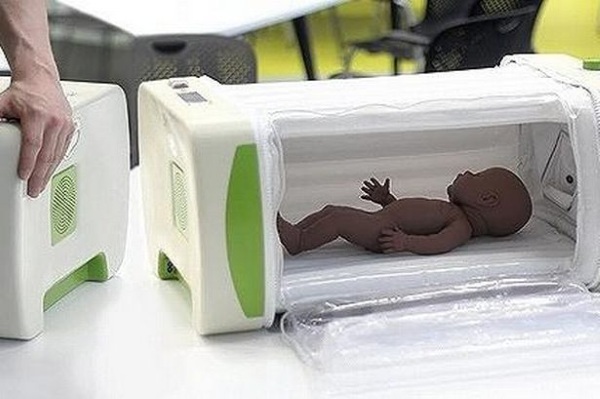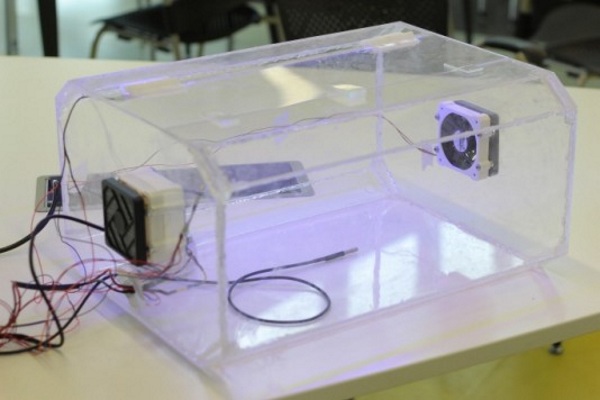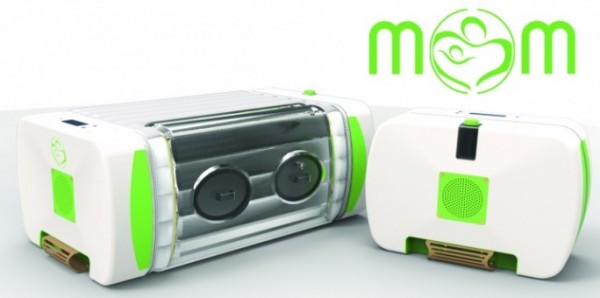The international winner of this year’s James Dyson Award has gone to the inventor of an inflatable incubator for prematurely born babies.
The device, referred to as “Mom,” is said to match the performance of in-hospital machines that cost 100 times the price.

Loughborough University (U.K.) graduate James Roberts, Mom’s inventor, said he hopes his product will be used in the developing world, citing a TV documentary he saw as his primary source of inspiration.
“I was watching a Panorama program on BBC about Syrian refugees, and they had a segment about how there are loads of premature kids dying because of the stresses of war and specifically the lack of incubators out there and the infrastructure to support them,” he said. “I thought there has to be a way to solve that.”
Roberts added that the £30,000 award ($47,708 USD) will be used to continue work on the machine, which he hopes to bring to market by 2017.
Mom is deigned to be delivered as flat-packed parts that are assembled once they reach their destination. A sheet of plastic containing inflatable transparent panels makes up the bulk of the incubator. The panels are blown up manually and heated by a ceramic element that wraps around the interior to keep a newborn warm.
“When it’s opened it won’t collapse on the child and will maintain its shape,” Roberts explained.
An Arduino computer is hooked up to the incubator to serve various purposes, including temperature stabilization, humidity control, and to manage a phototherapy lamp that can be used to treat jaundice; the computer will also sound an alarm should something with the incubator go awry.

The electronic components that Roberts included with the incubator were specifically selected so as to use as little power as possible; as a result, Mom can run off a car battery for more than 24 hours when a main source of electricity is otherwise not available.
The modular design of the kit allows damaged parts to be replaced without having to send the entire unit in. Once a child has been taken out of the incubator, it easily collapses, whereupon the plastic sheet can be sterilized for re-use elsewhere.

“Normally with incubators it costs loads to get them anywhere because you need huge boxes to put them in, and that can cost a lot to put on a flight,” Roberts said. “This one can go in a care packages already used for refugee camps.”
He estimates his current prototype costs £250 to manufacture ($400 USD). In contrast, Roberts says systems offering a similar level of performance cost about £30,000 ($47,745).
Runners-up in the James Dyson competition were:
Qolo — Electric chair that can be controlled by the user tilting and twisting their upper body
Suncayr — Pen with color changing ink that can be applied to the skin to let the user know when they should reapply sun cream
Bruise — Injury detection suit for disabled athletes
Via BBC
Advertisement
Learn more about Electronic Products Magazine





